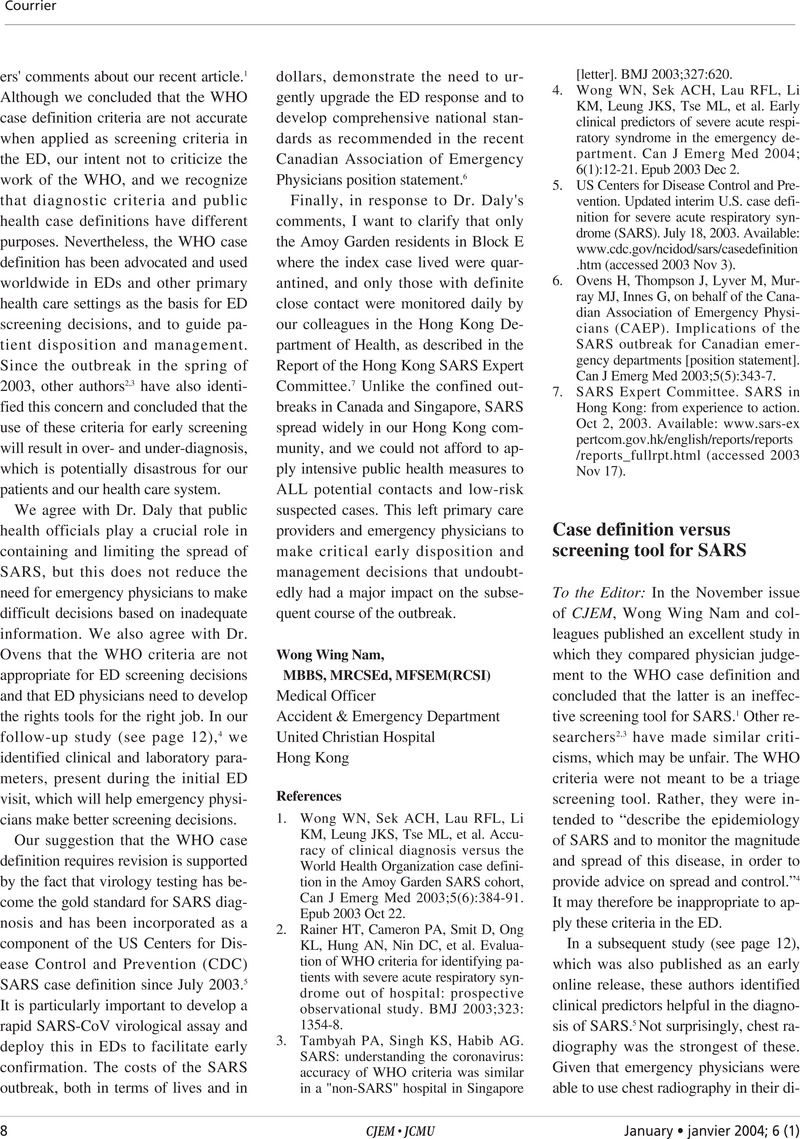No CrossRef data available.
Article contents
Case definition versus screening tool for SARS
Published online by Cambridge University Press: 21 May 2015
Abstract
An abstract is not available for this content so a preview has been provided. As you have access to this content, a full PDF is available via the ‘Save PDF’ action button.

- Type
- Letters • Courrier
- Information
- Copyright
- Copyright © Canadian Association of Emergency Physicians 2004
References
1.Wong, WN, Sek, ACH, Lau, RFL, Li, KM, Leung, JKS, Tse, ML, et al. Accuracy of clinical diagnosis versus the World Health Organization case definition in the Amoy Garden SARS cohort. Can J Emerg Med 2003;5(6):384–91. Epub 2003 Oct 22.CrossRefGoogle ScholarPubMed
2.Rainer, HT, Cameron, PA, Smit, D, Ong, KL, Hung, AN, Nin, DC, et al. Evaluation of WHO criteria for identifying patients with severe acute respiratory syndrome out of hospital: prospective observational study. BMJ 2003;323: 1354–8.CrossRefGoogle Scholar
3.Thompson, J.SARS: finding a deadly needle in the haystack [editorial]. Can J Emerg Med 2003;5(6):392–3.CrossRefGoogle ScholarPubMed
4.World Health Organization. Case definitions for surveillance of severe acute respiratory syndrome (SARS). Geneva: The Organization; 2003. Available: www.who.int/csr/sars/casedefinition/en (accessed 2003 Dec 5).Google Scholar
5.Wong, WN, Sek, ACH, Lau, RFL, Li, KM, Leung, JKS, Tse, ML, et al. Early clinical predictors of severe acute respiratory syndrome in the emergency department. Can J Emerg Med 2004; 6(1):12–21. Epub 2003 Dec 2.CrossRefGoogle ScholarPubMed


